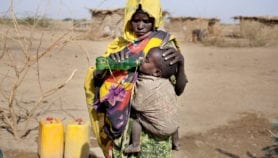By: Nicky Lewis
Send to a friend
The details you provide on this page will not be used to send unsolicited email, and will not be sold to a 3rd party. See privacy policy.
Developing countries are already making massive reductions to their greenhouse gas emissions, according to a report released today. The six countries studied — Brazil, China, India, Mexico, South Africa and Turkey — are jointly reducing their emissions by almost 300 million tons per year.
But, says the report — published today (24 October) by the US-based Pew Center on Global Climate Change — these effects appear to be a secondary result of various development and environmental policies rather than being motivated by climate change itself.
For example, aggressive biofuels programmes aimed at diversifying energy supplies in Brazil, slowed population growth in China, and enforcement of existing clean air laws in India, have all succeeded in lowering greenhouse gas emissions.
"The key message [of this report] is that climate protection can go hand in hand with economic growth and other overriding priorities of developing countries," says Eileen Claussen, president of the Pew Center. "With the right strategies, developing countries can achieve their goals even as they contribute more strongly to the effort against climate change."
Greenhouse gas emissions from the developing world are set to overtake those from developed countries within the next 50 years. But while poor countries are reluctant to take on binding emissions targets — laying the blame for climate change squarely on industrialised nations — it seems that they are already making good headway.
The report suggests that such an achievement could help counter the view shared by some in the developed world, and particularly by the Bush administration, that developing countries are not doing enough to tackle climate change.
© SciDev.Net 2002













